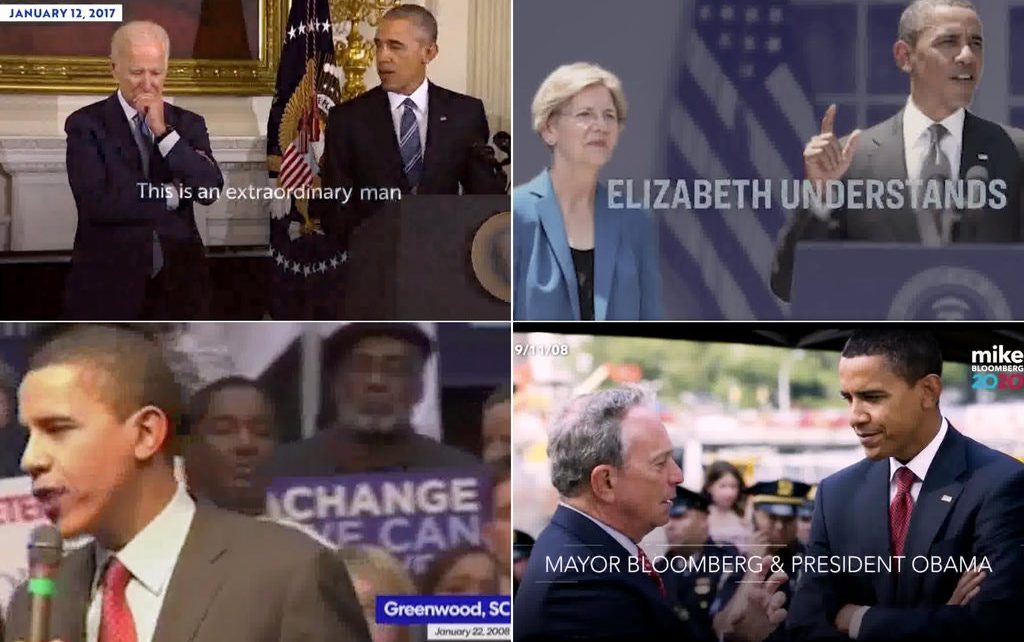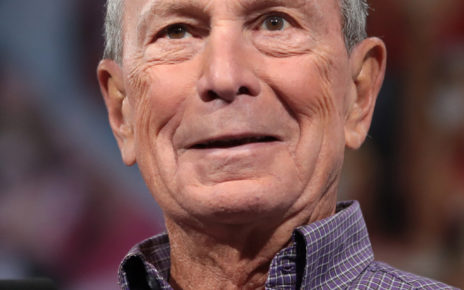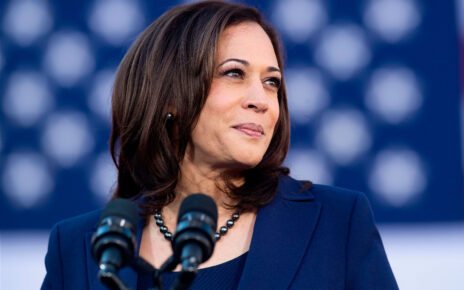The battle for momentum in the two states could prove pivotal. Here’s how the candidates are making their pitches.
In South Carolina, four presidential candidates are running ads featuring praise from former President Barack Obama.
In Nevada, Senator Bernie Sanders, Tom Steyer and Pete Buttigieg are pitching their candidacies in Spanish.
And Mr. Steyer has gone negative, attacking Mr. Sanders of Vermont for failing to provide a price tag for his “Medicare for All” plan, calling former Vice President Joseph R. Biden Jr. “another insider” and Mr. Buttigieg, the former mayor of South Bend, Ind., an “untested newcomer.”
After the Iowa caucuses devolved into a chaotic mess and the New Hampshire primary did little to offer clarity, the battle for momentum in Nevada and South Carolina — two states with meaningfully diverse populations that more closely resemble the Democratic base — could prove pivotal.
After the New Hampshire primary, multiple candidates began running their first significant ad campaigns in Nevada, which caucuses on Feb. 22, and South Carolina, which votes on Feb. 29. Total spending in both states jumped to $4.5 million from $2.5 million the week before.
And with many campaigns now strapped for cash as they head toward Super Tuesday on March 3, their messaging and the money they can put behind it may foreshadow who will be a force in a national campaign and who will run into a wall.
“While there has been some campaigning in Nevada, the voters aren’t nearly as tuned in as Iowa and New Hampshire, so it is very important to get campaign messages in front of voters,” said Kelly Gibson, a Democratic media strategist who advised the campaigns of Andrew Yang and Julián Castro.
“The flip side of that,” she said, is “many voters are still making up their minds, so the ads can have more immediate effectiveness.”
Obama, Clyburn and appeals to black voters in South Carolina
A majority of South Carolina’s Democratic voters are black, and campaigns have been tailoring their pitches to appeal to them.
Both Mr. Biden and Senator Elizabeth Warren of Massachusetts are running 30 seconds of uninterrupted praise from Mr. Obama.
The plaudits for Ms. Warren are for spearheading the creation of the Consumer Financial Protection Bureau. Her campaign has recently cut its ad reservations in South Carolina, and the ad will be on air for only a few more days.
Mr. Biden’s campaign, which has more than $735,000 on air over the next two weeks in a state it has staked its future on, cribbed its ad from the ceremony where he was awarded the Presidential Medal of Freedom.
“Joe’s candid, honest counsel made me a better president and a better commander in chief,” Mr. Obama says. “The best part is he’s nowhere close to finished.”
Mr. Biden enjoys strong support in South Carolina largely because of his association with Mr. Obama, and by highlighting it he is seeking to boost his struggling campaign.
But Mr. Biden, who was supported on television in Iowa and New Hampshire by the super PAC Unite the Country, is on his own so far in Nevada and South Carolina; the group has made no additional ad buys, according to Advertising Analytics.
Mr. Steyer had to reach a bit further for a connection to Mr. Obama. His ad features Edith Childs, a local politician who in 2008 shouted at Mr. Obama, “Fired up, ready to go!” The line became a tagline for him. Ms. Childs, who has now endorsed Mr. Steyer, says in the ad, “My God, Tom’s fired up, and Trump’s got to go.”
Mr. Steyer has mounted an exorbitantly expensive effort in South Carolina, spending nearly $17 million on television and radio ads in the state since July. For 15 weeks this summer and fall, he was the only candidate on air in the state, running ads largely targeted at black voters, including endorsements from local members of the state’s legislative black caucus.
By the numbers
BIDEN $751,580 total, $404,909 over the last two weeks
BUTTIGIEG $1,783,650 total, $428,128 over the last two weeks
KLOBUCHAR $56,490 total, all over the last two weeks
SANDERS $253,196 total, $162,886 over the last two weeks
STEYER $17,775,264 total, $1,870,852 over the last two weeks
WARREN $651,351 total, $276,285 over the last two weeks
Mr. Buttigieg, who performed strongly in the first two voting states, has been struggling to connect with black voters in South Carolina.
On Tuesday, his campaign booked $350,000 worth of ads over one week and put a new ad on air featuring two black staff members — Walter A. Clyburn Reed and Abe Jenkins. In the ad, they explain why they decided to work for Mr. Buttigieg and reference their prominent grandfathers, the civil rights activist Esau Jenkins and Representative James E. Clyburn.
Attack ads, super PACs and speaking in Spanish in Nevada
In Nevada, the ads are getting a little punchier. Mr. Steyer became the first candidate to target a Democratic rival, airing two negative ads, one taking aim at Mr. Biden and Mr. Buttigieg, and another at Mr. Sanders.
“There’s a reason people are nervous about Bernie Sanders scrapping Obamacare,” the narrator says in the anti-Sanders ad, as the screen shows Mr. Sanders appearing on Fox News. “Unions don’t like it.”
Mr. Steyer has flooded the airwaves in Nevada, spending $13.8 million of the $18.8 million spent by candidates and super PACs there so far. He’s seen his stock rise in both Nevada and South Carolina, climbing in statewide polling likely as a result of having the airwaves mostly to himself.
The decision to go negative, which could backfire among Democratic voters who are concerned about divisions before a contentious general election, is a sign of his financial might.
“Steyer has nothing to lose,” said Ms. Gibson, the strategist. “He has the money to stay in, and has already invested so much. Right now, he doesn’t have to go up against Bloomberg on the ballot, which I think he is really taking advantage of.”
(Michael R. Bloomberg, the billionaire former mayor of New York, is not competing in either Nevada or South Carolina, but his nationwide ad buys mean his ads are seen in both states.)
By the numbers
BIDEN $902,477 total, $430,751 over the last two weeks
BUTTIGIEG $1,024,155 total, $923,190 over the last two weeks
KLOBUCHAR $365,233, all over the last two weeks
SANDERS $1,811,125 total, $949,232 over the last two weeks
STEYER $13,845,560 total, $1,695,095 over the last two weeks
WARREN $1,060,284 total, $507,177 over the last two weeks
VOTEVETS $589,100, all over the last two weeks
DEMOCRATIC MAJORITY FOR ISRAEL $461,397, all over the last two weeks
A super PAC called Democratic Majority for Israel, which spent nearly $1 million on a negative ad attacking Mr. Sanders in Iowa, has made a $460,000 buy in Nevada. The group’s founder said last month that Mr. Sanders was in a “uniquely bad position” to win a general election.
And a super PAC supporting Mr. Buttigieg, VoteVets, just began a $590,000 ad campaign in Nevada.
Earlier this month, a top adviser to Mr. Buttigieg tweeted that his military experience would resonate in the state. Per federal election law, campaigns are barred from directly coordinating with super PACs. But by making the statement publicly, the campaign is exonerated.
VoteVets clearly got the message, turning out an ad eight days later that featured a Vietnam veteran extolling Mr. Buttigieg’s background and message.
The current polling leader in Nevada, Mr. Sanders, is doing little message tailoring in the state. His Spanish-language ad is largely biographical, telling the immigration story of his father.
Mr. Sanders’s other ads in Nevada closely mirror his stump speech, though they are delivered by Mr. Sanders, clad in a blue sweater, in a living room. “I’m Bernie Sanders and I approve this message because we need an economy that works for all of us,” he says at the end of one of them, “not just wealthy campaign contributors.”
Senator Amy Klobuchar of Minnesota, whose campaign recently announced a “seven-figure” ad buy in Nevada and South Carolina, is recycling two ads from New Hampshire, including a rapid flip through her plan for her first 100 days as president.
Ms. Klobuchar’s campaign prefers basing ads on excerpts from her speeches, and after her surprise third-place showing in New Hampshire, she kicked off her primary-night speech with an ad-ready introduction.
“Hello America, I’m Amy Klobuchar, and I will beat Donald Trump,” she said.
The candidate later told reporters that she started with that line because she thought it was the first time many in the country would see and hear her. It’s likely voters in South Carolina and Nevada will soon hear that line, too.
Source: Ads in Spanish, Obama Cameos: The Democratic Ad Race in Nevada and South Carolina






